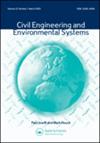Faith and fakes – dealing with critical information in decision analysis
IF 1.1
3区 工程技术
Q3 ENGINEERING, CIVIL
引用次数: 30
Abstract
ABSTRACT Decision making subject to uncertain information, whether fake or factual, in the context of management of socio-technical systems, is critically discussed from both philosophical and operational perspectives. In dealing with possible fake, incorrect and/or factual information we take the perspective that any information utilised as basis for supporting decisions, has to be dealt with in exactly the same manner – in accordance with Bayesian decision analysis. The important issue is to identify and model the scenarios through which information may cause adverse consequences and to account for their potential effects. To this end we first provide a mapping of how information affects the decision making context and a categorisation of causes for information leading to adverse consequences. Secondly, we introduce a decision analytical framework aiming to optimise decision alternatives for managing systems including not only one possible system model but a set of different possible system models. As a means for assessing the benefit of collecting additional information, we utilise Value of Information analysis from Bayesian decision analysis. Finally, a principal example is provided which illustrates selected aspects of how possibly fake information affects decision making and how it might be dealt with.诚信与虚假——在决策分析中处理关键信息
在社会技术系统管理的背景下,决策决策受到不确定信息的影响,无论是假的还是事实的,从哲学和操作的角度进行了批判性的讨论。在处理可能的虚假、不正确和/或事实信息时,我们采取的观点是,作为支持决策基础的任何信息都必须以完全相同的方式处理——按照贝叶斯决策分析。重要的问题是识别和模拟信息可能导致不利后果的情景,并解释其潜在影响。为此,我们首先提供了信息如何影响决策环境的映射以及导致不利后果的信息原因分类。其次,我们引入了一个决策分析框架,旨在优化管理系统的决策选择,不仅包括一个可能的系统模型,而且包括一组不同的可能的系统模型。作为评估收集额外信息的好处的一种手段,我们利用贝叶斯决策分析中的信息价值分析。最后,提供了一个主要的例子,说明了虚假信息如何可能影响决策以及如何处理它的选定方面。
本文章由计算机程序翻译,如有差异,请以英文原文为准。
求助全文
约1分钟内获得全文
求助全文
来源期刊

Civil Engineering and Environmental Systems
工程技术-工程:土木
CiteScore
3.30
自引率
16.70%
发文量
10
审稿时长
>12 weeks
期刊介绍:
Civil Engineering and Environmental Systems is devoted to the advancement of systems thinking and systems techniques throughout systems engineering, environmental engineering decision-making, and engineering management. We do this by publishing the practical applications and developments of "hard" and "soft" systems techniques and thinking.
Submissions that allow for better analysis of civil engineering and environmental systems might look at:
-Civil Engineering optimization
-Risk assessment in engineering
-Civil engineering decision analysis
-System identification in engineering
-Civil engineering numerical simulation
-Uncertainty modelling in engineering
-Qualitative modelling of complex engineering systems
 求助内容:
求助内容: 应助结果提醒方式:
应助结果提醒方式:


